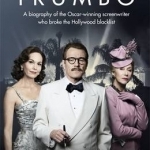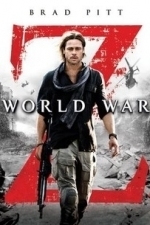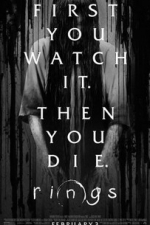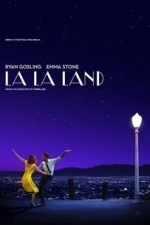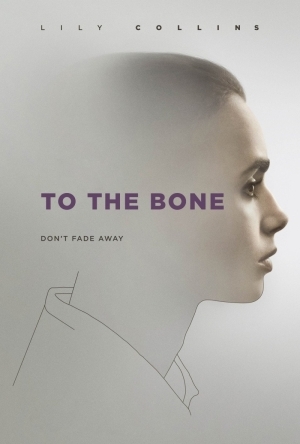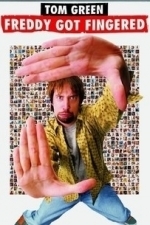Search
Search results
Film tie-in
I received this book for free through Goodreads First Reads.
Nominated for an Oscar, BAFTA and Golden Globe,Trumbo is a recent film based on the original biography Dalton Trumbo written by Bruce Cook in 1977. Its adaptation to film provided the perfect opportunity to republish this extremely well researched book. With a forward written by John McNamara, the screenwriter of the motion picture, the story of Dalton Trumbo’s life is just as intriguing as it was almost forty years ago. But who is Trumbo?
If, like me, you have never heard of Trumbo or even the infamous “Hollywood Ten,” it may take a while for it to become clear as to why it was worth Cook’s time to produce a book about the man. Dalton Trumbo was a well-known screenwriter of films such as Papillon, Lonely Are The Brave and Roman Holiday as well as author of the novel Johnny Got His Gun. However these are not all he is famous for. During his life, Trumbo became a member of the Communist Party, which Hollywood branded as an Un-American Activity and thus blacklisted him, as well as other screenwriters, directors and actors. Ten of these men, Trumbo included, were imprisoned for their political beliefs – yet nothing prevented Trumbo from continuing his fairly successful career.
Interestingly, Cook begins the book with the final stages of Trumbo’s life. At time of writing Trumbo was still alive, although rather poorly. After contracting lung cancer, having a lung removed, and suffering a heart attack, Trumbo was a very sick man; nonetheless he was still enthusiastic about being interviewed and telling his personal story.
From his childhood, to his evening shifts at a bakery, Cook details Trumbo’s early life, emphasizing the hard upbringing he had before he found himself in the world of Hollywood. Although roughly 75% of the book focuses on Trumbo’s career, Cook highlights Trumbo as a family man, with both a wife and three children who he absolutely adores.
Cook constantly refers to the Hollywood Ten as a concept that the reader should already be familiar with. Granted, someone who picks up this book is more likely to do so having a prior interest in the central figure, and thus already know about his background; however those ignorant on the topic eventually gather a better understanding on the topic once reaching the relevant chapters. It also becomes clearer why Trumbo is worth reading/writing about – he may have been blacklisted, but he managed to break through all the barriers and reinstate his name and many others.
Reading this half a century after the event, it seems strange that Trumbo was imprisoned. He had not done anything intrinsically wrong, it was purely prejudice against his political beliefs that got him into the mess he found himself. But when you consider the events of the time: World War Two, the Cold War, the Korean War, and Vietnam; it is understandable why many feared those who claimed to be Communists.
Cook’s narrative does not flow as a story, and much of it is broken up with quotes from various people he interviewed. The timeline jumps about between past and present (1970s), which occasionally gets a bit confusing. A large part of the book is spent analyzing many of Trumbo’s works – both for screen and written formats – which, unless you have a particular interest, can be a little tedious.
It has got to be said that Bruce Cook was an exemplary writer with a great eye for detail. He did not jump to conclusions or only talk about things from his point of view. Instead he interviewed, what seems like, everyone who ever met Trumbo, and based his writing on fact backed up with numerous quotes and citations.
This edition of Trumbo contains a selection of photographs taken on the set of the movie. Disappointingly it does not contain any of Trumbo himself – you would think that some photos could have been tracked down!
Trumbo is not a book that will interest everyone. Most people today – particularly in England – will probably be unaware of who Dalton Trumbo was, and thus would only seek out this publication due to a fascination with film production. I have not seen the film, but after reading this and discovering how books go from novels, to screenplays to moving image, it would be interesting to find out which parts of Trumbo’s life made it onto the big screen.
Nominated for an Oscar, BAFTA and Golden Globe,Trumbo is a recent film based on the original biography Dalton Trumbo written by Bruce Cook in 1977. Its adaptation to film provided the perfect opportunity to republish this extremely well researched book. With a forward written by John McNamara, the screenwriter of the motion picture, the story of Dalton Trumbo’s life is just as intriguing as it was almost forty years ago. But who is Trumbo?
If, like me, you have never heard of Trumbo or even the infamous “Hollywood Ten,” it may take a while for it to become clear as to why it was worth Cook’s time to produce a book about the man. Dalton Trumbo was a well-known screenwriter of films such as Papillon, Lonely Are The Brave and Roman Holiday as well as author of the novel Johnny Got His Gun. However these are not all he is famous for. During his life, Trumbo became a member of the Communist Party, which Hollywood branded as an Un-American Activity and thus blacklisted him, as well as other screenwriters, directors and actors. Ten of these men, Trumbo included, were imprisoned for their political beliefs – yet nothing prevented Trumbo from continuing his fairly successful career.
Interestingly, Cook begins the book with the final stages of Trumbo’s life. At time of writing Trumbo was still alive, although rather poorly. After contracting lung cancer, having a lung removed, and suffering a heart attack, Trumbo was a very sick man; nonetheless he was still enthusiastic about being interviewed and telling his personal story.
From his childhood, to his evening shifts at a bakery, Cook details Trumbo’s early life, emphasizing the hard upbringing he had before he found himself in the world of Hollywood. Although roughly 75% of the book focuses on Trumbo’s career, Cook highlights Trumbo as a family man, with both a wife and three children who he absolutely adores.
Cook constantly refers to the Hollywood Ten as a concept that the reader should already be familiar with. Granted, someone who picks up this book is more likely to do so having a prior interest in the central figure, and thus already know about his background; however those ignorant on the topic eventually gather a better understanding on the topic once reaching the relevant chapters. It also becomes clearer why Trumbo is worth reading/writing about – he may have been blacklisted, but he managed to break through all the barriers and reinstate his name and many others.
Reading this half a century after the event, it seems strange that Trumbo was imprisoned. He had not done anything intrinsically wrong, it was purely prejudice against his political beliefs that got him into the mess he found himself. But when you consider the events of the time: World War Two, the Cold War, the Korean War, and Vietnam; it is understandable why many feared those who claimed to be Communists.
Cook’s narrative does not flow as a story, and much of it is broken up with quotes from various people he interviewed. The timeline jumps about between past and present (1970s), which occasionally gets a bit confusing. A large part of the book is spent analyzing many of Trumbo’s works – both for screen and written formats – which, unless you have a particular interest, can be a little tedious.
It has got to be said that Bruce Cook was an exemplary writer with a great eye for detail. He did not jump to conclusions or only talk about things from his point of view. Instead he interviewed, what seems like, everyone who ever met Trumbo, and based his writing on fact backed up with numerous quotes and citations.
This edition of Trumbo contains a selection of photographs taken on the set of the movie. Disappointingly it does not contain any of Trumbo himself – you would think that some photos could have been tracked down!
Trumbo is not a book that will interest everyone. Most people today – particularly in England – will probably be unaware of who Dalton Trumbo was, and thus would only seek out this publication due to a fascination with film production. I have not seen the film, but after reading this and discovering how books go from novels, to screenplays to moving image, it would be interesting to find out which parts of Trumbo’s life made it onto the big screen.
My rating: 3.5
<i>I received this book for free through Goodreads First Reads.</i>
Nominated for an Oscar, BAFTA and Golden Globe, <i>Trumbo</i> is a recent film based on the original biography <i>Dalton Trumbo</i> written by Bruce Cook in 1977. Its adaptation to film provided the perfect opportunity to republish this extremely well researched book. With a forward written by John McNamara, the screenwriter of the motion picture, the story of Dalton Trumbo’s life is just as intriguing as it was almost forty years ago. But who is Trumbo?
If, like me, you have never heard of Trumbo or even the infamous “Hollywood Ten,” it may take a while for it to become clear as to why it was worth Cook’s time to produce a book about the man. Dalton Trumbo was a well-known screenwriter of films such as <i>Papillon, Lonely Are The Brave</i> and <i>Roman Holiday</i> as well as author of the novel <i>Johnny Got His Gun</i>. However these are not all he is famous for. During his life, Trumbo became a member of the Communist Party, which Hollywood branded as an Un-American Activity and thus blacklisted him, as well as other screenwriters, directors and actors. Ten of these men, Trumbo included, were imprisoned for their political beliefs – yet nothing prevented Trumbo from continuing his fairly successful career.
Interestingly, Cook begins the book with the final stages of Trumbo’s life. At time of writing Trumbo was still alive, although rather poorly. After contracting lung cancer, having a lung removed, and suffering a heart attack, Trumbo was a very sick man; nonetheless he was still enthusiastic about being interviewed and telling his personal story.
From his childhood, to his evening shifts at a bakery, Cook details Trumbo’s early life, emphasizing the hard upbringing he had before he found himself in the world of Hollywood. Although roughly 75% of the book focuses on Trumbo’s career, Cook highlights Trumbo as a family man, with both a wife and three children who he absolutely adores.
Cook constantly refers to the Hollywood Ten as a concept that the reader should already be familiar with. Granted, someone who picks up this book is more likely to do so having a prior interest in the central figure, and thus already know about his background; however those ignorant on the topic eventually gather a better understanding on the topic once reaching the relevant chapters. It also becomes clearer why Trumbo is worth reading/writing about – he may have been blacklisted, but he managed to break through all the barriers and reinstate his name and many others.
Reading this half a century after the event, it seems strange that Trumbo was imprisoned. He had not done anything intrinsically wrong, it was purely prejudice against his political beliefs that got him into the mess he found himself. But when you consider the events of the time: World War Two, the Cold War, the Korean War, and Vietnam; it is understandable why many feared those who claimed to be Communists.
Cook’s narrative does not flow as a story, and much of it is broken up with quotes from various people he interviewed. The timeline jumps about between past and present (1970s), which occasionally gets a bit confusing. A large part of the book is spent analyzing many of Trumbo’s works – both for screen and written formats – which, unless you have a particular interest, can be a little tedious.
It has got to be said that Bruce Cook was an exemplary writer with a great eye for detail. He did not jump to conclusions or only talk about things from his point of view. Instead he interviewed, what seems like, everyone who ever met Trumbo, and based his writing on fact backed up with numerous quotes and citations.
This edition of <i>Trumbo</i> contains a selection of photographs taken on the set of the movie. Disappointingly it does not contain any of Trumbo himself – you would think that some photos could have been tracked down!
<i>Trumbo</i> is not a book that will interest everyone. Most people today – particularly in England – will probably be unaware of who Dalton Trumbo was, and thus would only seek out this publication due to a fascination with film production. I have not seen the film, but after reading this and discovering how books go from novels, to screenplays to moving image, it would be interesting to find out which parts of Trumbo’s life made it onto the big screen.
<i>I received this book for free through Goodreads First Reads.</i>
Nominated for an Oscar, BAFTA and Golden Globe, <i>Trumbo</i> is a recent film based on the original biography <i>Dalton Trumbo</i> written by Bruce Cook in 1977. Its adaptation to film provided the perfect opportunity to republish this extremely well researched book. With a forward written by John McNamara, the screenwriter of the motion picture, the story of Dalton Trumbo’s life is just as intriguing as it was almost forty years ago. But who is Trumbo?
If, like me, you have never heard of Trumbo or even the infamous “Hollywood Ten,” it may take a while for it to become clear as to why it was worth Cook’s time to produce a book about the man. Dalton Trumbo was a well-known screenwriter of films such as <i>Papillon, Lonely Are The Brave</i> and <i>Roman Holiday</i> as well as author of the novel <i>Johnny Got His Gun</i>. However these are not all he is famous for. During his life, Trumbo became a member of the Communist Party, which Hollywood branded as an Un-American Activity and thus blacklisted him, as well as other screenwriters, directors and actors. Ten of these men, Trumbo included, were imprisoned for their political beliefs – yet nothing prevented Trumbo from continuing his fairly successful career.
Interestingly, Cook begins the book with the final stages of Trumbo’s life. At time of writing Trumbo was still alive, although rather poorly. After contracting lung cancer, having a lung removed, and suffering a heart attack, Trumbo was a very sick man; nonetheless he was still enthusiastic about being interviewed and telling his personal story.
From his childhood, to his evening shifts at a bakery, Cook details Trumbo’s early life, emphasizing the hard upbringing he had before he found himself in the world of Hollywood. Although roughly 75% of the book focuses on Trumbo’s career, Cook highlights Trumbo as a family man, with both a wife and three children who he absolutely adores.
Cook constantly refers to the Hollywood Ten as a concept that the reader should already be familiar with. Granted, someone who picks up this book is more likely to do so having a prior interest in the central figure, and thus already know about his background; however those ignorant on the topic eventually gather a better understanding on the topic once reaching the relevant chapters. It also becomes clearer why Trumbo is worth reading/writing about – he may have been blacklisted, but he managed to break through all the barriers and reinstate his name and many others.
Reading this half a century after the event, it seems strange that Trumbo was imprisoned. He had not done anything intrinsically wrong, it was purely prejudice against his political beliefs that got him into the mess he found himself. But when you consider the events of the time: World War Two, the Cold War, the Korean War, and Vietnam; it is understandable why many feared those who claimed to be Communists.
Cook’s narrative does not flow as a story, and much of it is broken up with quotes from various people he interviewed. The timeline jumps about between past and present (1970s), which occasionally gets a bit confusing. A large part of the book is spent analyzing many of Trumbo’s works – both for screen and written formats – which, unless you have a particular interest, can be a little tedious.
It has got to be said that Bruce Cook was an exemplary writer with a great eye for detail. He did not jump to conclusions or only talk about things from his point of view. Instead he interviewed, what seems like, everyone who ever met Trumbo, and based his writing on fact backed up with numerous quotes and citations.
This edition of <i>Trumbo</i> contains a selection of photographs taken on the set of the movie. Disappointingly it does not contain any of Trumbo himself – you would think that some photos could have been tracked down!
<i>Trumbo</i> is not a book that will interest everyone. Most people today – particularly in England – will probably be unaware of who Dalton Trumbo was, and thus would only seek out this publication due to a fascination with film production. I have not seen the film, but after reading this and discovering how books go from novels, to screenplays to moving image, it would be interesting to find out which parts of Trumbo’s life made it onto the big screen.
LeftSideCut (3776 KP) rated World War Z (2013) in Movies
Aug 6, 2019 (Updated Aug 6, 2019)
World War Z - the movie that finally dared to make the zombie genre family friendly.
That premise sounds horrible on paper, but somehow, it's not too bad!
Zombie films as a rule of thumb, tend to have a slow build up, before all hell breaks loose, and were treated to over the top violence and gore.
Not the case here... WWZ takes no time at all to kick off, as Brad Pitt and his family find themselves stuck in traffic when the shit hits that fan. Were less than 5 minutes in at this time.
As mentioned, the gore is kept to a minimum, but that didn't bother me. WWZ is more a disaster film than horror, but instead of a tidal wave or a hurricane, the threat are the undead.
And there a lot of them. The zombies here run fast, and in huge numbers, making for some true spectacles as they climb on top of each other to climb buildings etc.
There are two set pieces that are particularly eye catching. The scene in Jerusalem, and the scene on the plane, are both pretty full on and entertaining.
The last quarter of the film is a bit puzzling.
After the aforementioned set pieces, the film really slows down for the last 25 minutes. It's not necessarily a bad move, but just a bit...odd for a Hollywood blockbuster.
The film ends rather abruptly (after feeling a little overlong) and on a freeze frame no less (shoot me now).
The cast are pretty good for the most part - I'm an absolutely unashamed fan of Brad Pitt. I've never seen him play a bad part, so his involvement was always going to be a winner for me.
I've never read the book of WWZ but from what I've heard, the movie sharply deviates from it, pretty much only sharing the title.
From what I've gathered about the books layout, it seems that the film could have explored so much more - it may even suit a series rather than a movie.
WWZ is not much more than a dumb, Hollywood action film, with a couple of jump scares thrown in, but it's pretty entertaining here and there.
And with David Fincher in the directors chair for a future sequel, I'm up for what comes next.
That premise sounds horrible on paper, but somehow, it's not too bad!
Zombie films as a rule of thumb, tend to have a slow build up, before all hell breaks loose, and were treated to over the top violence and gore.
Not the case here... WWZ takes no time at all to kick off, as Brad Pitt and his family find themselves stuck in traffic when the shit hits that fan. Were less than 5 minutes in at this time.
As mentioned, the gore is kept to a minimum, but that didn't bother me. WWZ is more a disaster film than horror, but instead of a tidal wave or a hurricane, the threat are the undead.
And there a lot of them. The zombies here run fast, and in huge numbers, making for some true spectacles as they climb on top of each other to climb buildings etc.
There are two set pieces that are particularly eye catching. The scene in Jerusalem, and the scene on the plane, are both pretty full on and entertaining.
The last quarter of the film is a bit puzzling.
After the aforementioned set pieces, the film really slows down for the last 25 minutes. It's not necessarily a bad move, but just a bit...odd for a Hollywood blockbuster.
The film ends rather abruptly (after feeling a little overlong) and on a freeze frame no less (shoot me now).
The cast are pretty good for the most part - I'm an absolutely unashamed fan of Brad Pitt. I've never seen him play a bad part, so his involvement was always going to be a winner for me.
I've never read the book of WWZ but from what I've heard, the movie sharply deviates from it, pretty much only sharing the title.
From what I've gathered about the books layout, it seems that the film could have explored so much more - it may even suit a series rather than a movie.
WWZ is not much more than a dumb, Hollywood action film, with a couple of jump scares thrown in, but it's pretty entertaining here and there.
And with David Fincher in the directors chair for a future sequel, I'm up for what comes next.
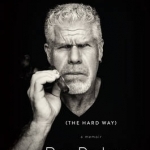
Easy Street (the Hard Way): A Memoir
Book
The engaging, passionate, always-honest, and often-hilarious memoir of actor Ron Perlman--his...

TutoPLAY Best TutoTOONS Games
Games and Education
App
TutoPLAY is an all-in-one app pack of most wanted TutoTOONS games. We hand-selected and added the...
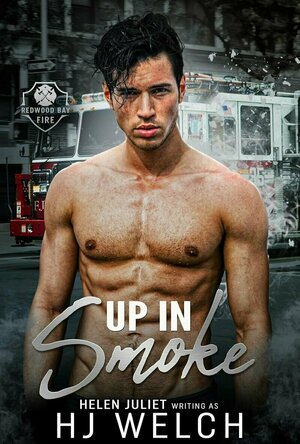
Up In Smoke (Redwood Bay Fire #4)
Book
Love never quits RICO I’ve always had a soft spot for my best friend’s younger brother,...
Suswatibasu (1703 KP) rated Rings (2017) in Movies
Oct 30, 2017 (Updated Oct 30, 2017)
Done to death (excuse the pun)
(Rant) The American Ring series is a franchise that should never have been given the go-ahead in the first place, mostly because it's a massacre of the original Japanese film, as Hollywood has never heard of the term "less is more". And this pretty much tops the entire collection as the most pointless film that was made. Lessons were clearly not learnt from the initial two movies.
For one, assume that Samara is evil. There are no two ways about that. So why these do-gooders continually attempt to save her is beyond me. Do they never learn? And two, after seeing what Samara can do to a person's face in the previous films, this seems to be less frightening in the third and hopefully final film in the trilogy. Hence the above the qualm - less is more.
The Japanese films diverge massively, and the best part of it is the fact that they don't need to be over-dramatic to create pure fear. Japanese and Korean subtlety does not translate well in the US film industry and its uniqueness is why the movies were exemplary. Not worth your time.
For one, assume that Samara is evil. There are no two ways about that. So why these do-gooders continually attempt to save her is beyond me. Do they never learn? And two, after seeing what Samara can do to a person's face in the previous films, this seems to be less frightening in the third and hopefully final film in the trilogy. Hence the above the qualm - less is more.
The Japanese films diverge massively, and the best part of it is the fact that they don't need to be over-dramatic to create pure fear. Japanese and Korean subtlety does not translate well in the US film industry and its uniqueness is why the movies were exemplary. Not worth your time.
John Garrett (27 KP) rated La La Land (2016) in Movies
Jul 11, 2017
Cinematography (1 more)
The leads
The ending (1 more)
Pacing
A musical love letter for hollywood
this charming movie is an unashamedly nostalgic love letter to years of cinema gone. The musical numbers to the impromptu dance routines make this a throughly enjoyable film for lovers of film old and new.
the 2 leads in this film Emma Stone and Ryan Gosling are superb. They both manage beautiful nuanced performances. They have fantastic chemistry as shown in previous films (crazy stupid love & gangster squad) but it really comes alive in this film.
the direction and cinematography of this movie is sometimes visually breathtaking. Damen Chiselle has proven what a versatile director he is with this movie and is willing to take a real risk.
where this movie does fall flat unfortunately is the pacing. At times the movie feels like it drags and could do with slimming out. At just over 2 hours this film is fairly long for a musical of modern standards. Also I felt the ending to be rather disjointed and jarring.
That being said I still found this movie to be absolutely charming and has a brilliant musical score you will be humming and whistling for days to come.
the 2 leads in this film Emma Stone and Ryan Gosling are superb. They both manage beautiful nuanced performances. They have fantastic chemistry as shown in previous films (crazy stupid love & gangster squad) but it really comes alive in this film.
the direction and cinematography of this movie is sometimes visually breathtaking. Damen Chiselle has proven what a versatile director he is with this movie and is willing to take a real risk.
where this movie does fall flat unfortunately is the pacing. At times the movie feels like it drags and could do with slimming out. At just over 2 hours this film is fairly long for a musical of modern standards. Also I felt the ending to be rather disjointed and jarring.
That being said I still found this movie to be absolutely charming and has a brilliant musical score you will be humming and whistling for days to come.
tonidavis (353 KP) rated To the Bone (2017) in Movies
Jul 15, 2017
Best adaptation of anorexia I've ever seen (2 more)
Very real
Every actor outstanding
A must watch!
I've read and watched a lot of film programs and read a lot of book on subject like this. Whilst I have never had an eating disorder my self harming and sucided when younger has caused me to have in patient treatment. As I've recovered and been stable enough to get a psychology degree I know look at the show different that I did when I was younger. However I do like to see how media pursue these issues and if they handle them with the care that needed. This film is beautifully handled ever single actor portrayed there part beautifully and made it so real. The story was brilliant and true their was no glamering or Hollywood effect it was something that could so easily be real. I fell for every character and truely hope people watch and take awake front this film on how hard recovery is but people can recover if given right support and the right time.
Richard Crump (5 KP) rated Freddy Got Fingered (2001) in Movies
May 5, 2018 (Updated May 5, 2018)
The beastiality was too much. (1 more)
Had to watch it twice to find it funny
Over the top or just silly fun?
Gord Brody (Tom Green) is a cartoonist trying to pitch an animated show to Hollywood execs. After failing, he goes home and has to live with his parents and brother Freddy (Eddie Kaye Thomas). His father (Rip Torn) doesn't approve of Gord's career path and pressures him to get a real job and move out. That is, Until Gord claims his dad is molesting Freddy which leads to drastic and hilarious consequences.
Sounds crazy right? Very weird and surreal but it makes me chuckle. Very silly toilet humour tbf and there are a few scenes that are a bit inappropriate and because of this, I’m not sure if tom green is bizarre, needs medical attention or a genius.
So was it over the top or just a bit of silly fun?
IMO a bit of BOTH
Sounds crazy right? Very weird and surreal but it makes me chuckle. Very silly toilet humour tbf and there are a few scenes that are a bit inappropriate and because of this, I’m not sure if tom green is bizarre, needs medical attention or a genius.
So was it over the top or just a bit of silly fun?
IMO a bit of BOTH
